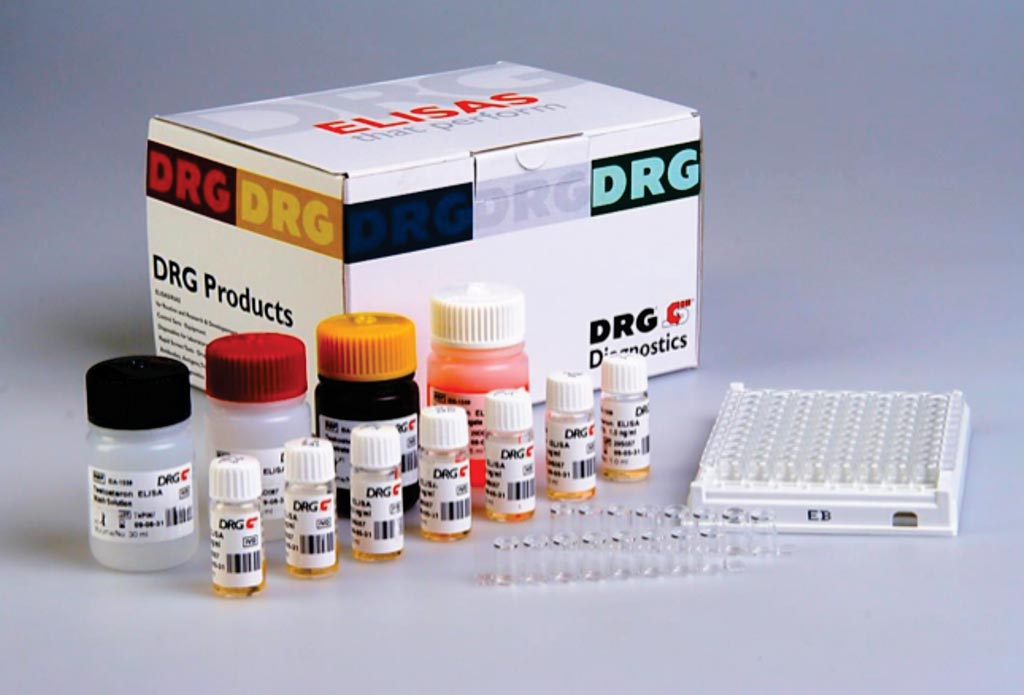Fecal Zonulin Elevated in Crohn’s Disease and Smokers
By LabMedica International staff writers
Posted on 20 Nov 2017
Human zonulin is a protein that increases permeability in the epithelial layer of the small intestine by reversibly modulating the intercellular tight junctions. There is not sufficient information available about zonulin's participation in inflammatory bowel diseases (IBD).Posted on 20 Nov 2017
Increased serum/plasma zonulin levels have been described in celiac disease, type 1 and 2 diabetes or in obesity-associated insulin resistance, and circulating plasma zonulin has been suggested as a potential marker of intestinal permeability. Fecal and serum zonulin have been investigated in IBD patients and its relation to the disease localization and behavior.

Image: Enzyme-linked immunosorbent assay (ELISA) kits for the measurement of fecal and serum zonulin (Photo courtesy of DRG International).
Scientists at Charles University (Prague, Czech Republic) enrolled 40 consecutive IBD patients, 32 with Crohn’s disease (CD) and eight with ulcerative colitis (UC) in whom fecal and blood samples were available from a tertiary IBD clinical center. Forty healthy persons (laboratory technicians and their family members) without personal or family history of IBD were matched by age and gender and examined as a control (CTRL) group. There were 27 active smokers and 13 non-smokers in the CTRL group.
Raw stool samples from the IBD and CTRL groups were frozen and stored at −80 °C within 12 hours after the sampling. The Fecal Sample Preparation kit for the preparation of fecal eluates was used. Blood samples were collected into commercially available serum-separating tubes. Fecal and serum zonulin concentrations were measured by competitive enzyme-linked immunosorbent assays (ELISA) as: Zonulin (Serum) EIA and Zonulin (Stool) EIA.
Fecal calprotectin as a marker of gut inflammation was measured by the Calprotectin Alegria ELISA kit. The investigators found that serum and fecal zonulin were significantly higher in patients with Crohn’s disease compared to ulcerative colitis. No association of serum or fecal zonulin was found with respect to IBD localization and behavior. The only difference was found with respect to smoking. Both the IBD cohort and healthy smokers showed significantly higher fecal zonulin levels (median 203 ng/mL) compared to non-smokers (median 35.8 ng/mL). Fecal calprotectin concentrations were significantly higher in IBD patients compared to healthy controls.
The authors concluded that zonulin as a marker of intestinal permeability is increased in stool and serum samples of patients with Crohn’s disease. However, zonulin levels in IBD patients are not influenced by disease location or behavior. High fecal zonulin levels in smokers with and without intestinal disease point to the significant and undesirable up-regulation of gut permeability in cigarette smokers. The study was published online on September 23, 2017, in the journal Practical Laboratory Medicine.
Related Links:
Charles University













